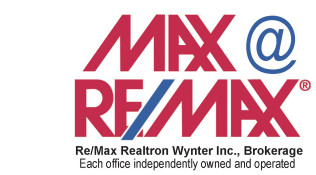The typical first-time home buyer in Toronto generally considers buying a condominium. Condos generally cost much less than a detached or semi-detached home in the same neighbourhood and often form the first rung on the ladder to the “estate home” for which many of us aspire. But did you know that there is an even lower rung on this ladder of home ownership? It is the housing cooperative or co-op, a housing type that is very popular in other parts of the world but not so well known in Toronto.
Photo of a Coorperative building at 800 Kennedy Rd., Scarborough
We all know what a condo is; a private residence in a multi-unit building. The owner of a condo owns the condo unit as well as part ownership of commonly used property. The unit has its own title and taxes and the owner shares the responsibility for the maintenance of all the commonly owned areas, such as the roof of the building, the land that the building is on, the lobby of the building and so on. These commonly owned areas are usually owned and managed by a corporation (the condo corporation).
A co-op is also a multi-unit building but that is where the similarities end. The entire building and the land on which it is located are all owned by a corporation. A co-op owner owns shares in this corporation and so has an interest in the entire property but does not own a particular suite or unit. The entire property is owned, cooperatively, by all the owners whose shares allow them to enter into a contract or a lease which entitles them to occupy a particular unit. The concept is like that of a Credit Union which is owned by the people whose savings and investments are held by the Credit Union.
So, Co-ops are collectively owned and managed by their residents, who own shares in a non-profit corporation that holds the title to the property and grants proprietary leases to the residents. They are very popular in New York where Co-op City in the Bronx, with a population of over 35,000 residents, might be the largest such development in the world.
Co-ops tend to be cheaper per square foot making them a perfect entry level property. Owners can buy shares, move in and, in a few years, if is suits them, sell their shares and move out.
On the down side, co-ops often have a lot more rules that the typical condo. Owners in a co-op building arguably have more at risk if an owner defaults on their maintenance payment and so put greater effort in ensuring that all owners are credit worthy and honourable. There are also usually rules restricting the ability of owners to rent out their suites (usually they can’t rent out their suites).
Not all banks will finance purchasing shares in a co-op, but most Credit Unions will, which is logical considering the similarities in the ownership models of the two.
In Toronto there are many Co-ops, occupied by persons in all stages of live. First time buyers find this an appealing start but seniors who have downsized also enjoying living in a building that is managed by a community of owners.
If you know of anyone who might be attracted to living in a co-op, please contact us. We’ll be happy to provide more information. To see a co-op we have listed click here.


